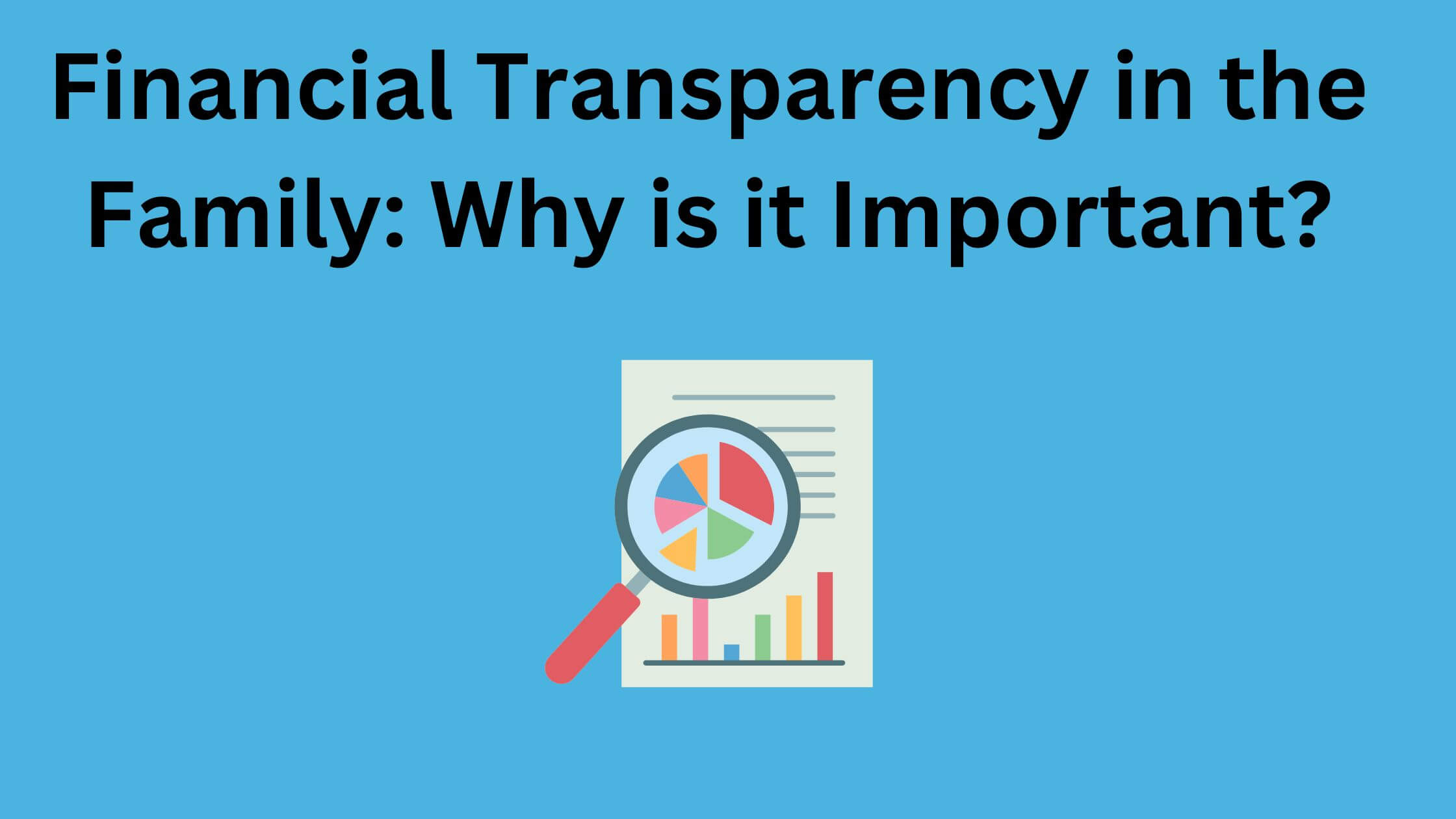For many couples, the topic of finances can be a sensitive one. It becomes even more complicated when one partner earns significantly more than the other. This can lead to feelings of resentment and frustration, especially if the higher earner expects the lower earner to contribute equally to shared expenses.
If you find yourself in this situation, know that you are not alone. Here are 13 ways to deal with the situation and maintain financial harmony in your relationship.
It’s important to remember that money should never be used as a means of control or power within a relationship. Both partners should feel valued and respected regardless of their income level.
With open communication and a willingness to compromise, it is possible for couples to navigate these tricky waters and come out stronger on the other side. So if you’re ready to take control of your finances and maintain your own sense of freedom, read on for some helpful tips on how to handle this common issue in relationships.
Ways to Deal with the Situation and Maintain Financial Harmony in Your Relationship
1. Acknowledge Your Feelings
Imagine being in a boat, rowing against the current. You paddle and paddle, but it feels like you’re not moving forward at all. The frustration builds up inside of you until you feel like giving up.
That’s how it can feel when your partner earns more than you but expects you to split everything equally.
It’s important to acknowledge those feelings and not ignore them. It might seem easier to brush it off and say ‘it’s fine’ or ‘I’ll deal with it,’ but that only leads to resentment down the road.
Take time to recognize what emotions are surfacing – frustration, anger, disappointment – and give yourself permission to feel them.
Seek support from friends or family members who can provide a listening ear and offer their perspectives. Sometimes just having someone else validate your feelings can be enough to help you move forward with clarity and determination.
Remember, acknowledging your emotions is the first step towards finding a solution that works for both you and your partner.
2. Have An Honest Conversation
Having an honest conversation with your husband about this situation is essential in finding a solution that works for both of you.
It’s important to start by practicing active listening, allowing each other to express their concerns without interruption or judgment. Give your partner the space to share their perspective on why they believe splitting expenses evenly is fair.
Once you’ve listened carefully, it’s time to express your concerns as well. Be clear and honest about how you feel and how it affects you financially and emotionally. Let your partner know that you appreciate their contribution but also need to be realistic about what you can afford.
Together, brainstorm potential solutions and compromises that could work for both of you.
Remember, communication is key in any relationship, especially when it comes to finances. By having an open and honest conversation with your partner, you can set clear financial goals together and find a way forward that respects both of your contributions and needs.
3. Set Clear Financial Goals
Identifying priorities and setting financial boundaries are crucial steps toward reaching your financial goals. Start by discussing what is important to both of you in terms of spending, saving, and investing. This will help you understand each other’s values and preferences when it comes to money.
Once you have identified your priorities, it’s time to set clear financial boundaries. This means establishing limits on how much you can spend on certain things and sticking to those limits. It also means being honest about what you can afford and not trying to keep up with your husband, who has a higher income than you do.
Setting clear financial goals and boundaries will help you avoid arguments about money and ensure that you are working together towards a common goal. Remember, the key is communication and compromise.
By working together as a team, you can create a plan that works for both of you and helps you achieve your shared financial goals.
As you move forward, the next step is to create a budget together. This will allow you to track your spending, identify areas where you can cut back, and stay on track toward reaching your financial goals.
With a solid plan in place, you can feel confident knowing that you are taking control of your finances and building towards a brighter future together.
4. Create A Budget Together
Creating a budget together is a crucial step for any couple, especially when one partner earns more than the other. It allows both partners to have a clear understanding of their financial situation and helps them prioritize their expenses.
To start, track your spending for at least a month to see where your money is going. This will help you identify areas where you may be overspending and where you can cut back.
Once you have tracked your spending, sit down with your partner and prioritize your expenses. Determine what bills are essential and which ones can be reduced or eliminated altogether. This will help you create a budget that works for both of you and ensures that both partners are contributing proportionally based on their income.
Remember, creating a budget together takes time and patience. It may require some compromise on both sides, but it’s worth the effort in the long run. By prioritizing your expenses and tracking your spending, you’ll gain control over your finances and avoid unnecessary stress in your relationship.
In the next section, we’ll consider joint vs. separate accounts as another way to manage finances as a couple.
5. Consider Joint Vs. Separate Accounts
If you and your husband are dealing with a situation where he earns more than you and still wants you to pay 50% toward finances, considering joint vs separate accounts could be helpful. With separate accounts, you can each contribute based on your individual incomes.
However, this may create division in your relationship and make it harder to budget for joint expenses like rent or groceries. On the other hand, with joint accounts, you can both contribute to expenses and have total transparency in your finances.
This could help your husband understand the impact his higher salary has on your joint financial situation and could lead to more equitable contributions. Ultimately, it’s important to have open and honest discussions about your finances and come to a solution that works for both of you.
Remember, the goal is to have a harmonious relationship, and finding a financial arrangement that supports that is key.
6. Discuss A Fair Split Of Expenses
Did you know that according to a recent survey, over 60% of couples argue about money? Disagreements over finances can be a major source of tension in any relationship, especially when one partner earns more than the other. When it comes to splitting expenses, there are two main approaches: equal contribution or equal split.
Equal contribution means each partner contributes the same percentage of their income towards household expenses. For example, if one partner earns $100,000 and the other earns $50,000, the first partner would contribute 66% while the second would contribute 33%. This approach can be fairer for couples with vastly different incomes but may not work well if one partner has significantly higher living expenses or debt.
On the other hand, an equal split means dividing all expenses down the middle regardless of income. While this approach may seem fair on paper, it can create resentment if one partner has a more expensive lifestyle or different spending habits. To address this issue, couples may need to have an honest conversation about their individual needs and come up with a compromise that works for both parties.
| Pros of Equal Contribution | Cons of Equal Split |
|---|---|
| Fair for those with differing incomes | This can lead to disagreements over who pays for what |
| Takes into account individual financial situations | May not work well for those with higher living expenses or debt |
| Encourages open communication about finances | Can lead to disagreements over who pays for what |
As you can see from the table above, both approaches have their pros and cons. Ultimately, it’s up to each couple to decide what works best for them based on their unique circumstances. However, it’s important to address any differing lifestyles and spending habits that may affect how expenses are divided. In the next section, we’ll explore alternative living arrangements that can help ease financial tensions between partners.
7. Explore Alternative Living Arrangements
If you’re struggling to pay half of the expenses while your husband earns more, it may be time to consider alternative living arrangements.
One option is finding a roommate who can split the costs with you. This not only helps alleviate some financial stress but also adds an element of socialization and community.
Another possibility is exploring co-living arrangements where you can share a space with like-minded individuals. This type of living often includes communal spaces and shared amenities such as kitchens, laundry rooms, and living areas. Not only does this reduce expenses, but it also provides an opportunity to network and build relationships.
Of course, when considering these options, it’s important to weigh the pros and cons. Living with others may require adjusting to different lifestyles and personalities, so make sure to thoroughly vet any potential roommates or co-living spaces before committing.
- Research online for reputable roommate matching services.
- Look into co-living companies that offer flexible lease options.
- Discuss the idea with close friends or family members who may be interested in sharing a living space.
- Consider creating a detailed budget plan before making any decisions.
While exploring alternative living arrangements can provide temporary relief from financial strain, seeking professional financial advice may offer long-term solutions.
8. Seek Professional Financial Advice
It can be challenging to navigate financial disagreements within a relationship, especially when one partner earns significantly more than the other.
Seeking professional financial advice can be an effective way to address these issues and find a solution that works for both parties.
A financial advisor can provide an objective perspective on your situation and offer guidance on how to manage your finances as a couple.
They can also help you explore the pros and cons of different options, such as splitting expenses proportionally based on income or contributing equally regardless of earnings.
By weighing the cost benefit of each approach, you can make an informed decision that aligns with your goals and values.
Keep in mind that seeking professional financial advice does come with a cost, but it may be worth it in the long run if it helps you avoid further conflicts and achieve financial stability as a couple.
Ultimately, focusing on your shared values and working together towards common goals will be key to maintaining a healthy relationship and navigating any future challenges that may arise.
9. Focus On Your Shared Values
According to a study by TD Ameritrade, money is the leading cause of stress in relationships. It’s easy to see why when one partner earns significantly more than the other and expects them to split expenses equally. However, focusing on shared values can help alleviate some of that tension.
Instead of fixating on who pays for what, sit down with your partner and discuss your shared goals and values. Do you both prioritize saving for retirement? Are you passionate about traveling?
By understanding each other’s priorities, you can create a budget that aligns with those goals and eases financial stress. Effective communication is key in any relationship, especially when it comes to finances. Be open and honest with your partner about how you feel regarding splitting expenses.
If paying half isn’t feasible for you, explain why and propose alternatives that work for both parties. Remember, a healthy relationship involves compromise and understanding from both sides. Don’t let money define your relationship – focus on what brings you together instead.
10. Don’t Let Money Define Your Relationship
Money can be a sensitive topic in any relationship. It can be especially challenging when one partner earns significantly more than the other, as it can create tension and resentment. However, it’s important to remember that money should not define your relationship.
Communication strategies are key in navigating this situation. It’s important to have an open and honest conversation with your partner about how you both feel and what your expectations are. Expressing your concerns and feelings in a non-accusatory way can help prevent misunderstandings and hurt feelings. Mutual respect is crucial here – both partners need to value each other’s contributions, whether they are financial or otherwise.
To further strengthen your relationship, here are four practical ways to approach the income imbalance:
- Agree on proportionate contributions: If one partner earns more, they could contribute a larger percentage of their income towards shared expenses.
- Find ways to compromise: Perhaps one partner contributes more money towards rent while the other takes care of groceries or household chores.
- Set financial goals together: This could include saving for a vacation or down payment on a home.
- Seek professional help: Consider meeting with a financial planner who can help you come up with a plan that works for both of you.
Remember, money does not have to define your relationship. With effective communication strategies and mutual respect, couples can navigate this situation successfully.
As you work through this issue together, it may also be helpful to find ways to increase your income. This doesn’t have to mean taking on additional work if that’s not feasible – there are many creative ways to generate extra income that fit around busy schedules and lifestyles.
11. Find Ways To Increase Your Income
Money should never define a relationship. It has the power to turn love into something ugly and transactional. The truth is, when two people come together, they bring different strengths and weaknesses to the table. Sometimes that means one partner earns more than the other. But this shouldn’t be a source of conflict or resentment.
If you find yourself in a situation where your partner earns significantly more than you do, it’s important to remember that your value as a person is not determined by your salary. That being said, if you’re struggling financially, it may be time to consider ways to increase your income.
Career growth is one option – look for opportunities within your current company or consider taking on additional education or training. Another option is to find ways to achieve a better work-life balance. This might mean negotiating for flexible hours so you can take on freelance work or start a side business. It could also mean exploring alternative career paths that allow you to pursue your passions while still earning enough money to support yourself and contribute to your household.
No matter what path you choose, it’s important to practice gratitude and appreciation for what you have rather than focusing on what you lack. Remember that wealth comes in many forms – not just financial abundance, but also love, health, and personal fulfillment. By finding ways to cultivate these areas of your life, you’ll be able to create a sense of freedom and fulfillment that transcends any paycheck.
12. Practice Gratitude And Appreciation
It’s easy to get bogged down in the financial aspect of a relationship, especially when one partner earns significantly more than the other. However, it’s important to remember that money doesn’t define your relationship.
Instead of focusing on who pays for what, practice gratitude and express appreciation for each other. Start by taking time to reflect on all the wonderful things your partner brings to your life, beyond just their income. Maybe they have a great sense of humor or are always there to lend a listening ear. Whatever it is, make sure you let them know how much you appreciate those qualities.
Another way to practice gratitude is by keeping a daily journal where you write down three things you’re thankful for in your relationship. It can be as simple as ‘I’m grateful for our morning coffee together’ or ‘I’m thankful for how supportive my partner is when I’m stressed.’ This exercise helps shift your focus away from finances and onto the positive aspects of your partnership.
Remember why you’re together – it’s not solely based on income or who pays for what. You’re together because you love each other and enjoy spending time together. By practicing gratitude and expressing appreciation, you’ll deepen your connection with each other and strengthen your bond beyond financial matters.
13. Remember Why You’re Together
It’s easy to get caught up in the financial aspect of a relationship, especially when one partner earns more than the other. However, it’s important to remember why you’re together in the first place.
Is it because of your shared interests and values? Is it because you make each other happy? Focusing on these strengths can help ease tensions around money.
It’s also important to prioritize happiness over money. While financial stability is certainly important, it shouldn’t come at the cost of your mental health or relationship.
If splitting expenses equally is causing stress and resentment, have an open and honest conversation with your partner about finding a solution that works for both of you.
Ultimately, every relationship is unique and what works for one couple may not work for another. However, by focusing on your strengths as a couple and prioritizing happiness over money, you can navigate this situation together and come out stronger on the other side.
Conclusion
In conclusion, navigating financial differences in a relationship can be challenging, but it’s not impossible. By acknowledging your feelings and having an honest conversation with your partner, you can work together to find a solution that works for both of you.
For example, let’s say Sarah and John are a couple where John earns more than Sarah but wants her to pay half of the bills.
After discussing their financial goals and creating a budget together, they decide to have a joint account for shared expenses and separate accounts for personal spending.
This allows them to contribute proportionally based on their incomes while still maintaining some independence.
Remember, communication is key and finding ways to compromise can lead to a stronger relationship.
















